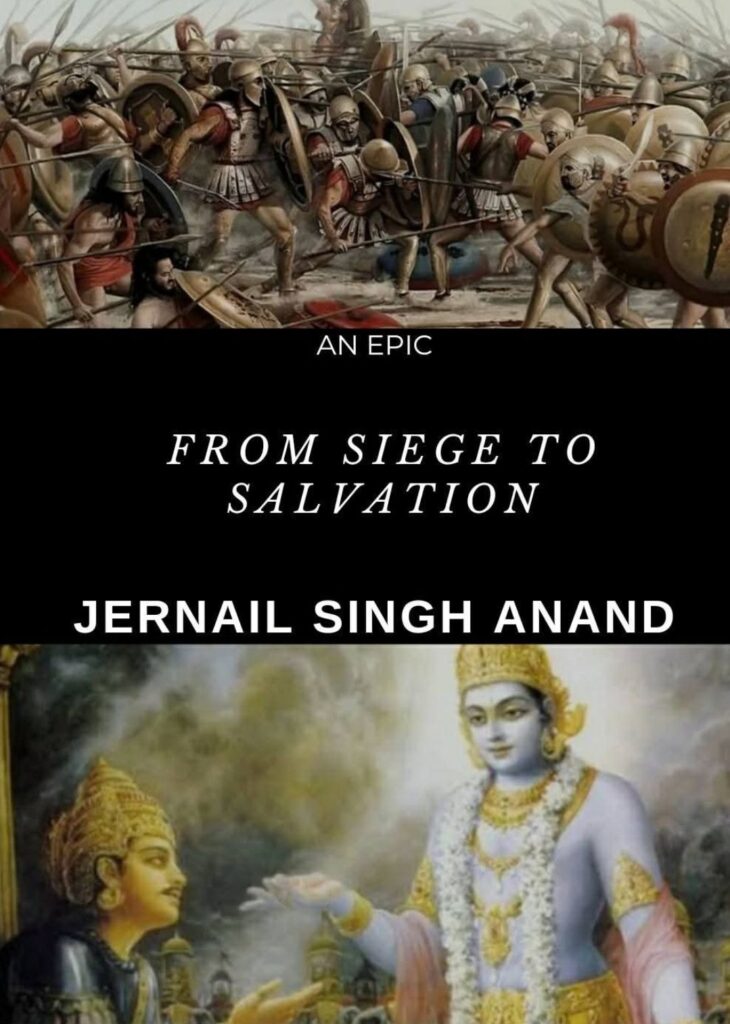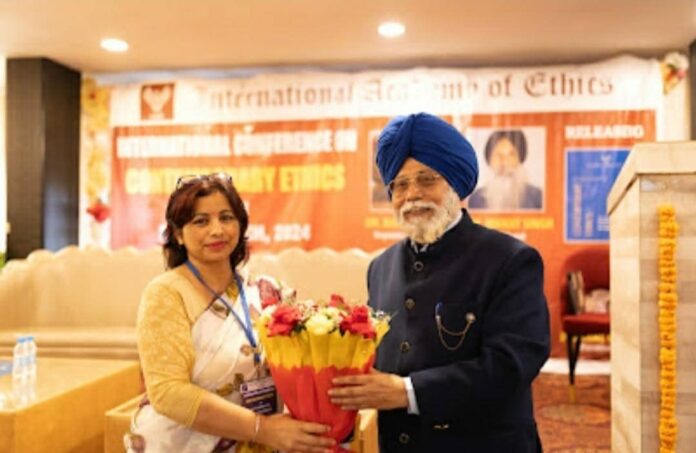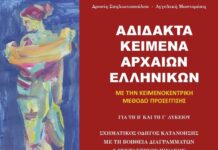Επιμέλεια: Εύα Πετροπούλου Λιανού
Dr Jernail Singh Anand poem review by Dr Manju Chouhan
UPCOMING EPIC POEM By DR JERNAIL S ANAND FROM SIEGE TO SALVATION
Dr Manju Chouhan, Professor of English, Chandigarh University, Punjab, sizes up the work in her inimitable style. I express my deep appreciation and thanks for her review of the book:

A REVIEW
“From Siege to Salvation” stands as a remarkable contribution to comparative literature, offering a profound meditation on how ancient epics continue to illuminate our understanding of human nature and purpose. Through his innovative dramatic structure, Professor Anand creates a space where East meets West, where the physical clashes with the spiritual, and where ancient wisdom speaks directly to contemporary concerns.
The work’s unique framework, structured as a dialogue between Professor and Chorus across thirteen cantos, allows Anand to explore the philosophical depths of both the Illiad and the Mahabharata with remarkable nuance. This conversational approach enables him to unpack complex ideas gradually, examining how these epics reflect fundamentally different worldviews. The Iliad, rooted in the heroic traditions of ancient Greece, celebrates individual achievement, physical prowess, and personal glory. Through characters like Achilles and Hector, it portrays a world where human worth is measured by battlefield victories and personal honor. This perspective, Anand suggests, laid the groundwork for Western individualism and its emphasis on material success.
Anand’s work is particularly innovative in how it examines gender roles across these epics. Through his analysis of characters like Helen, Draupadi, and Sita, he raises crucial questions about female agency and representation in classical literature. The comparison reveals how different civilizations understood and portrayed women’s roles in shaping historical and mythological narratives.

The relevance of Anand’s analysis to contemporary society can not be overstated. In an era marked by technological advancement and material prosperity (as he notes our world of “aeroplanes, IT, and now AI”), his work suggests that ancient wisdom remains vital for addressing modern moral challenges. The “siege” referred in the title becomes a powerful metaphor for various forms of modern conflict – between materialism and spirituality, between individual ambition and collective welfare, between immediate gratification and eternal values
What makes Anand’s work particularly compelling is its synthetic vision. Rather than simply contrasting Eastern and Western perspectives, he works toward a deeper understanding of how these different approaches to human experience might complement each other. Through careful analysis and thoughtful comparison, he suggests that perhaps the truest path to human fulfillment lies in finding a balance between the physical and spiritual realms between individual achievement and collective welfare.
The thirteen-canto structure allows Anand to systematically explore these themes while maintaining narrative tension and intellectual engagement. Each canto builds upon the previous ones, creating a comprehensive examination of how these ancient epics continue to inform our understanding of human nature, moral choice, and the eternal quest for meaning.
The work ultimately challenges readers to reconsider their own assumptions about success, achievement, and purpose. By juxtaposing the siege of Troy with the battle of Kurukshetra, Anand invites us to question what truly constitutes victory in human life. Is it the achievement of personal glory and material success, as celebrated in the Iliad? Or is it the realization of spiritual truth and dharmic duty, as emphasized in the Mahabharata? Through this thoughtful exploration, Anand suggests that perhaps the highest form of human achievement lies in bridging these seemingly opposing viewpoints, finding a path that honors both material and spiritual dimensions of human experience.
Dr Manju Chouhan
Professor
Dept of English
Chandigarh University


































